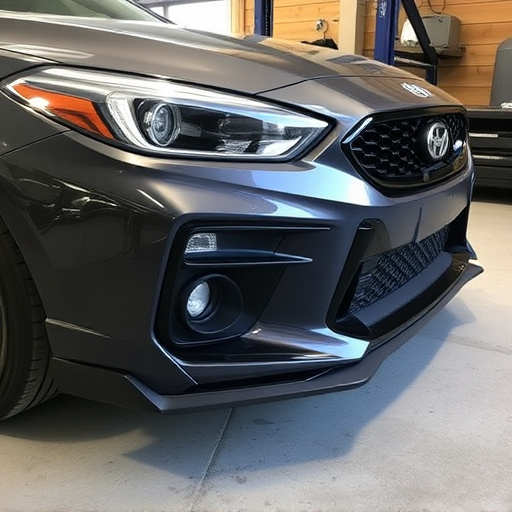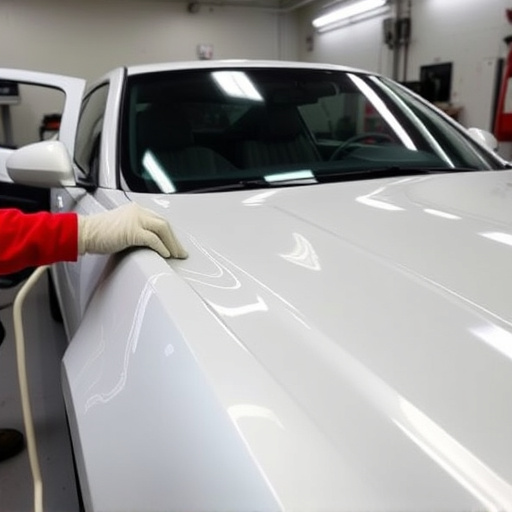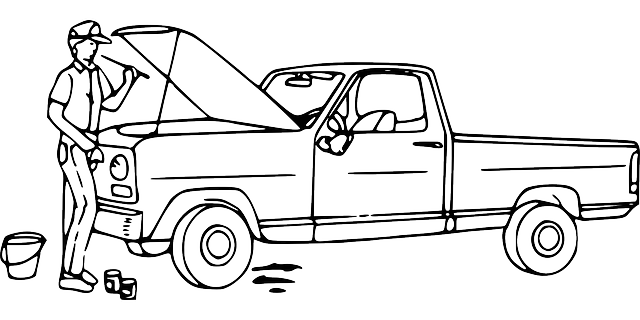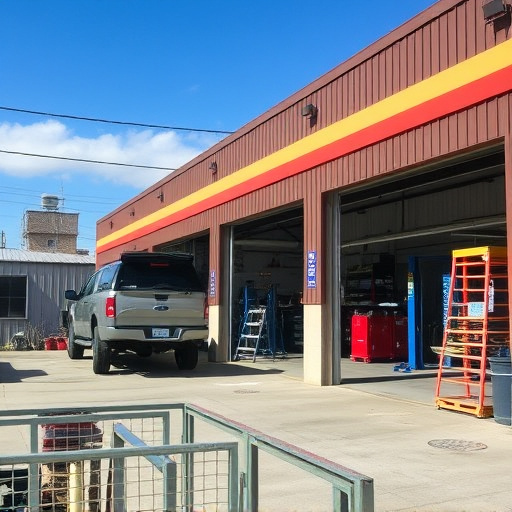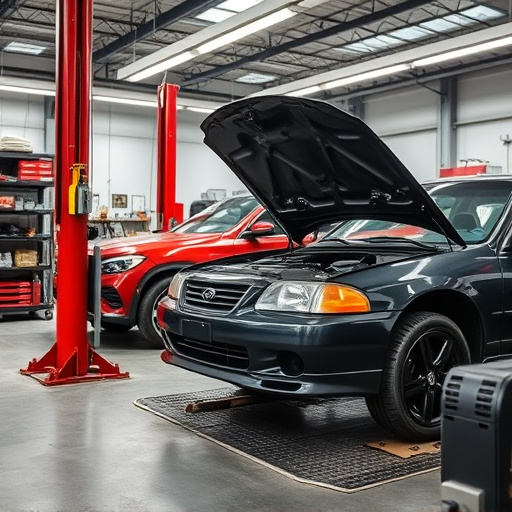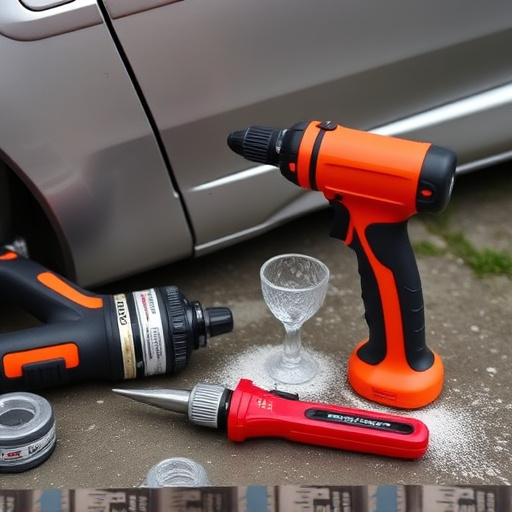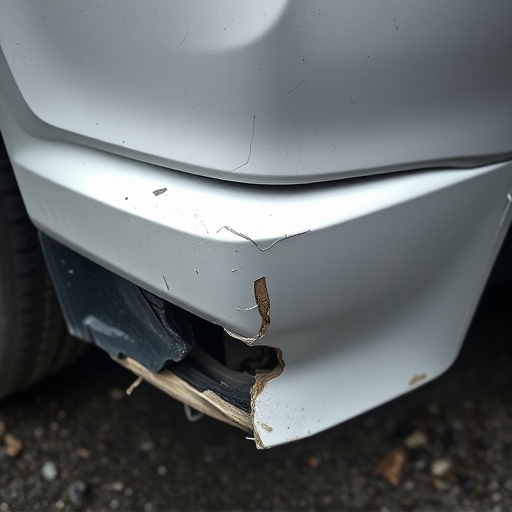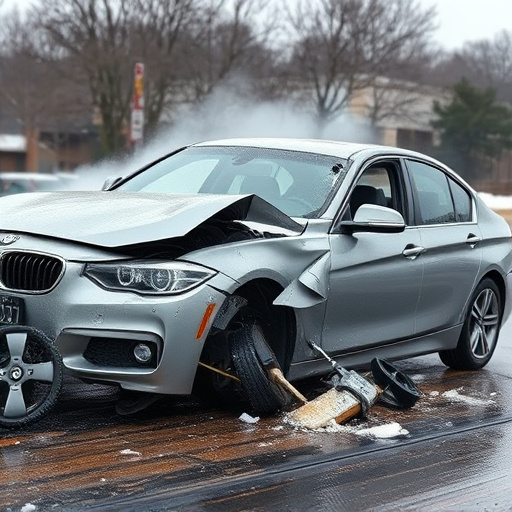Core support replacement (CSR) is a vital automotive service for structural integrity and safety, especially in dent removal. CSR technicians use advanced methods like paintless dent repair (PDR) to preserve car finishes and value. Effective CSR training involves interactive presentations, demonstrations, hands-on exercises, role-playing scenarios, and practical training with state-of-the-art equipment to enhance skills and prevent mechanical issues. Regular refresher courses keep staff updated on advancements, fostering a competent workforce capable of handling any collision repair challenge.
Training staff for effective core support replacement is a vital task for any organization. This comprehensive guide explores the essential steps to prepare your team, ensuring they can seamlessly fill in during leadership absences. We delve into understanding the unique role of core support replacement, offering effective training techniques and methods proven to enhance performance. Additionally, we provide practical strategies for implementing consistent and impactful core support replacement approaches.
- Understanding Core Support Replacement Role
- Preparing Staff: Training Techniques & Methods
- Implementing Effective Core Support Strategies
Understanding Core Support Replacement Role

Understanding Core Support Replacement involves recognizing its pivotal role within any automotive service operation. The core support replacement technician is not merely a fixer; they are the backbone ensuring structural integrity and safety in vehicle repairs, especially regarding dent removal and bodywork. Their expertise lies in accurately identifying and addressing damage that goes beyond the visible surface, delving into the deeper components that maintain a car’s shape and stability.
This specialized role requires an intricate knowledge of various repair methods, including modern innovations like paintless dent repair (PDR). Unlike traditional vehicle dent repair techniques, PDR allows for precise restoration without repainting, preserving the car’s original finish and value. Core support replacement professionals are trained to integrate these advanced services into their workflow, offering customers efficient, high-quality solutions for both visible and hidden dents and damage, ultimately enhancing customer satisfaction and maintaining the integrity of every vehicle that comes through the door.
Preparing Staff: Training Techniques & Methods
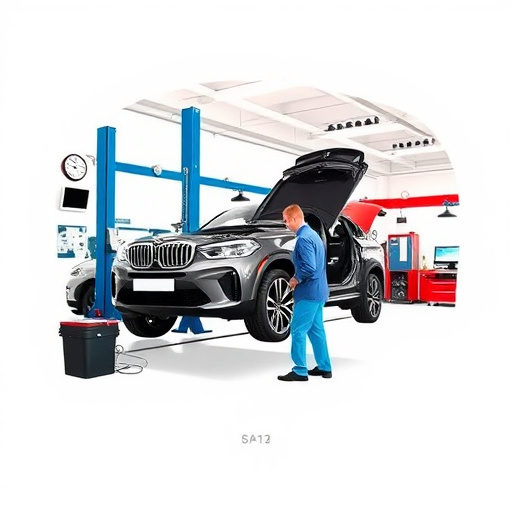
Preparing staff for effective core support replacement involves utilizing a combination of engaging training techniques and comprehensive methods. Start by breaking down complex concepts into digestible modules using interactive presentations, demonstrations, and hands-on exercises. This approach ensures that mechanics and technicians grasp the fundamentals, enabling them to apply knowledge during actual core support replacement procedures in the car body shop.
Encourage active participation through role-playing scenarios mimicking real-fender bender situations. Simulating challenges common in auto body repairs helps refine problem-solving skills and promotes teamwork. Additionally, provide ample opportunities for practical training using state-of-the-art equipment and materials, fostering confidence and proficiency in core support replacement techniques.
Implementing Effective Core Support Strategies
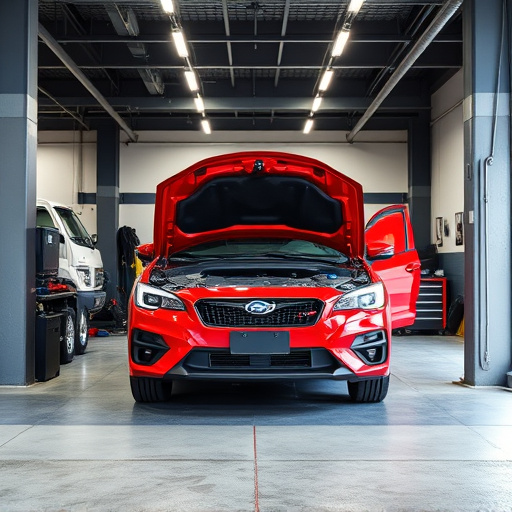
In the realm of staff training for core support replacement, implementing effective strategies is paramount to ensure smooth operations in any auto body services or collision repair shop. The process begins with a thorough understanding of the vehicle’s structural integrity and how each component interacts within the core support system. Training should cover identifying damage, assessing repairs needed, and selecting appropriate replacement parts—all crucial steps before initiating the actual core support replacement.
Instructors should emphasize the importance of precision and safety during the procedure, as incorrect installation can lead to serious mechanical issues. Hands-on training sessions, using both simulated and real vehicle structures, will enable staff to gain practical experience. Additionally, providing ongoing support with regular refresher courses ensures that workers stay updated on advancements in automotive repair services and core support replacement techniques, fostering a competent and adaptable workforce ready to tackle any challenge in collision repair shops.
Training staff for effective core support replacement is a multifaceted process that involves understanding the role, employing robust training techniques, and implementing proven strategies. By mastering these components, organizations can ensure their teams are well-equipped to provide exceptional core support, thereby enhancing overall operational efficiency and customer satisfaction. Embracing these practices will empower your staff to excel in their roles as core support replacements, fostering a culture of excellence and adaptability within your organization.
